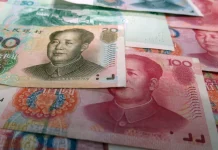 Macau casino operator SJM Holdings has admitted that gross gaming revenue, as well as non-gaming amenities will be negatively affected by novel coronavirus “for an indefinite period”, after reporting an HK$1.41bn (£140.9m/€155.3m/US$181.9m) loss for the first half of 2020.
Macau casino operator SJM Holdings has admitted that gross gaming revenue, as well as non-gaming amenities will be negatively affected by novel coronavirus “for an indefinite period”, after reporting an HK$1.41bn (£140.9m/€155.3m/US$181.9m) loss for the first half of 2020.The holding company behind Sociedade de Jogos de Macau reported a 74.4% year-on-year decline in net revenue to HK$4.37bn for the six months to 30 June, a period that saw casinos closed for 15 days in February.
Entry restrictions were in place for mainland China, Hong Kong and other locations, with transport to and from the special administrative region limited and quarantine requirements in place until the end of the reporting period. This significantly curtailed tourism to Macau, which only lifted a 14-day quarantine requirement for visitors from the Chinese mainland in mid-July.
This hit SJM’s gaming revenue in H1, which was also down 74.4% from the prior year, at HK$4.27bn. This, however, significantly reduced gaming taxes paid by the business in H1, from HK$7.93bn in the first six months of 2018 to HK$1.98bn.
The majority of gaming revenue in H1 came from mass market table games, which accounted for HK$3.29bn of the total, down 73.5%. VIP gaming’s contribution fell 81.6% HK$1.37bn, while revenue from slots was down 59.2% at HK$234.8m.
Amounts paid in commission and incentives to partners also fell significantly, dropping from HK$3.71bn in 2019, to HK$622.4m.
SJM’s H1 gaming revenue amounted to a 15.0% share of the Macau gaming market, including 22.0% of mass market table games, and 8.6% of VIP revenue.
Revenue from hotels, catering, retail and related services also fell sharply, down 71.2% to HK%102.0m. This broke down to HK$81.6m (down 62.4%) from catering and retail, and just HK$20.4m from hotel operations, down 85.1%.
This was exacerbated by the travel restrictions and quarantine requirements significantly reducing visitation to Macau. According to the special administrative region’s Statistics and Census Service, visitor numbers were down 68.8% in the first quarter, and 99.5% in the second.
Visitation from mainland China, meanwhile, fell by 69.2% in Q1, then by 99.3% in Q2. In the first half, SJM’s flagship property Casino Grand Lisboa received over 1.2 million visitors during the reporting period, averaging approximately 6,600 visitors per day. This marks a significant decline on approximately 6.3m visitors in the first half of 2019, or 35,000 per day.
While the reduction in visitation and gambling activity significantly reduced costs in H1, this decline was not as rapid as that of revenue, resulting in SJM’s earnings being hit hard.
Aside from marketing and promotional expenses, which plummeted from HK$3.14bn to HK$94.2m, the declines in costs of sales (down 42.1%) and operating and administrative costs (down 10.9%) were far less steep.
This resulted in a pre-tax loss of HK$1.47bn, rising to HK$1.48bn after taxes of HK$13.4m. If losses from non-controlling interests were stripped out, it amounted to a net loss of $1.41bn attributable to SJM Holdings’ owners.
“SJM’s first half results reflect the severe contraction in travel and tourism caused by the Covid-19 pandemic,” the operator’s vice chair and chief executive Dr Ambrose So said. “In this environment, we strive to control our running costs at a prudent level.
“We are confident that when the region emerges from the pandemic, SJM will be at the forefront of Macau’s resumed development into a world centre of tourism and leisure.”
However, the operator admitted there was no indication as to when impact of the pandemic on gaming revenue, as well as its hotel, restaurant and other non-gaming amenities, would end.
“Whilst certain travel restrictions are likely to be gradually lifted, and that visitation and spending will respond positively to such lifting, we do not expect a return to our previous level of revenue during any part of 2020,” it said.
“In particular, it is not known when China’s group and individual travel visas, which are critical to Macau’s tourist flow, will be reinstituted on a national basis,” SJM explained. “Even after such visa resumption, moreover, it is not possible to predict whether there will be lingering economic effects and health concerns caused by Covid-19 that will affect our business for a longer period.”
The operator will push ahead with plans to open its new resort on Cotai, the Grand Lisboa Palace. Construction of the property was completed late last year, and subject to securing operating permits, SJM hopes to open its doors to customers by the end of 2020.












